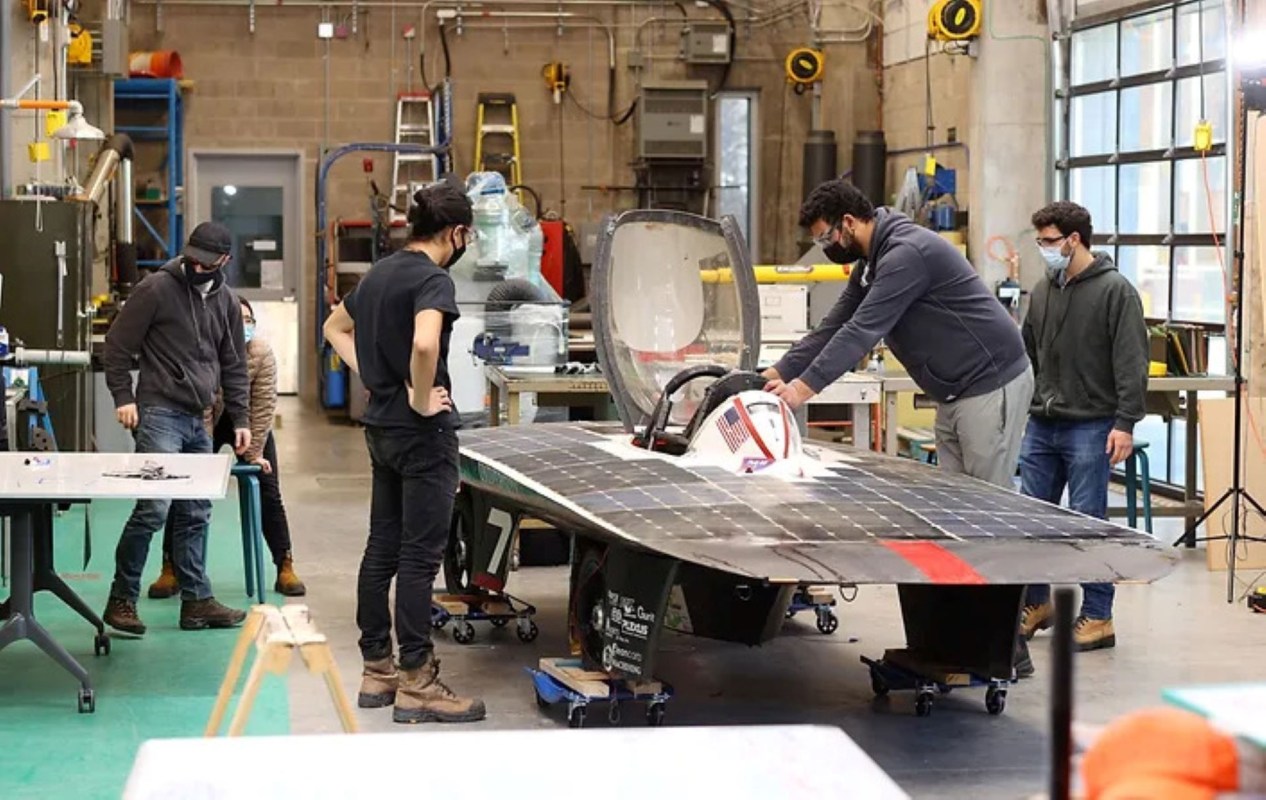A group of Canadian university students has recently developed a solar-powered electric vehicle, which they hope to unveil on the racetrack this summer.
While it's not the first solar-powered vehicle, it is reportedly the first of its kind in Atlantic Canada, which encompasses the provinces of New Brunswick, Newfoundland and Labrador, Nova Scotia, and Prince Edward Island.
A team of engineering students from Halifax's Dalhousie University helped develop "NOVA" with the aim of boosting clean energy solutions.
"We really want to show people how powerful clean energy and clean transportation can be," team member Kate Arsenault told CTV News.
The project started in 2021 with just five students. Since then, the team has grown to 80 electrical, computer, mechanical, chemical, environmental, industrial, and engineering students, along with computer science students.
NOVA features several solar panels, which take energy from the sun and convert it into electricity. This electricity flows into a high voltage box and then into a battery box. Then, energy from the battery flows through contactors to the motor controller and then to the motor itself.
"It's what makes our car move," Noah Bugden, the solar team motor lead told CTV News.
Solar-powered cars might be the next big thing when it comes to lower-impact transportation. The world's first commercial solar electric vehicles will be hitting markets over the next few years, reports CNBC, with companies like Sono Motors, Aptera Motors, and Lightyear taking the lead.
"Drive for months without charging," states the Lightyear homepage.
This technology is just another tool that can help us keep our air cleaner and mitigate the impacts of the overheating of our planet, as solar-powered cars contribute no planet-warming gases whatsoever.
Most electric cars — although better alternatives to conventional gasoline-powered cars — still require electricity production that may pollute the air and warm the planet. But in the first 10-12 months of average use, a solar car can actually be energy-positive, meaning it produces more energy than it consumes, according to a report from the United Nations.
While you might not see NOVA on the market anytime soon, you may see it circling around on the racetrack. The group hopes to send a 15-member race crew to the Formula Sun Grand Prix, an annual international closed-circuit car race being held this summer in Kansas. The team is currently fundraising to attend the event.
As for solar cars' availability, a few options exist, including the Sono Sion, which goes into mass production this year, and the Lightyear 2, which has a waitlist.
Join our free newsletter for weekly updates on the coolest innovations improving our lives and saving our planet.









